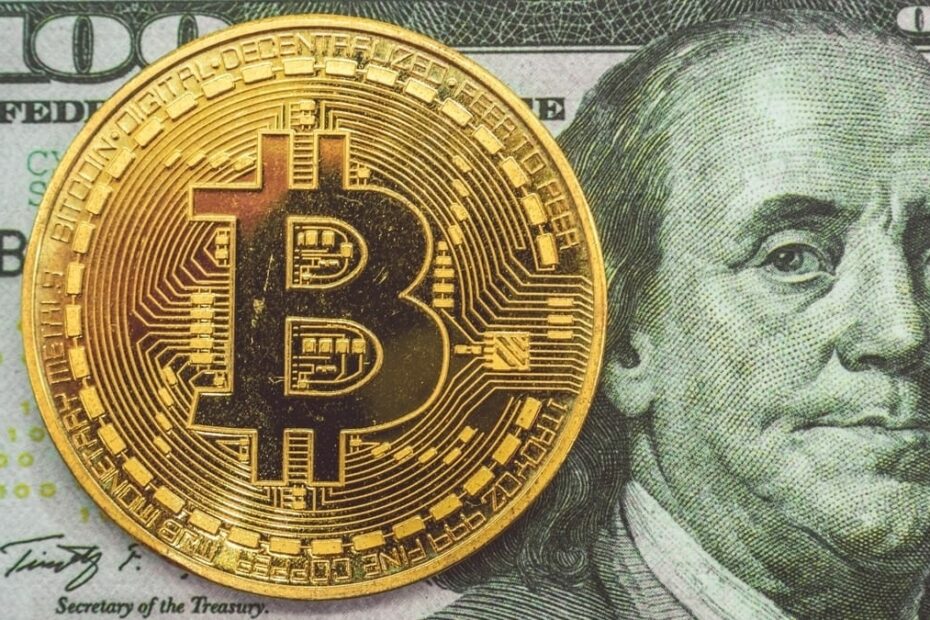Nestor Quixtan takes a pragmatic look at Bitcoin in El Salvador. Will it actually work for the Salvadoran people or is it just a pipe dream and a publicity stunt?
There’s a lot of buzz going around at the moment about the recent move by El Salvador to make Bitcoin legal tender.
In June 2021, El Salvador passed the Bitcoin Law, proposed by President Nayib Bukele, which effectively makes this particular cryptocurrency legal tender alongside the U.S. dollar.
The idea is, according to Bukele, to help ease the movement of remittances into El Salvador by lowering the fees associated with sending money and also to help those without bank accounts. Around 70 percent of Salvadorans don’t have a bank account, and Bukele sees Bitcoin as a way forward for them.
Furthermore, the beach community of El Zonte has been using Bitcoin for a while now, and it’s proving popular to both locals and tourists… to a degree. Bukele wants to expand the El Zonte experience throughout all El Salvador.
But here’s the thing – Bitcoin isn’t “money” like the dollar or quetzal or colon. And as such, calling it legal tender goes against the spirit of what Bitcoin actually is. It seems the whole thing is yet another Bukele publicity stunt, drawing world attention, while achieving very little except for diverting international eyes away from an increasing tendency toward authoritarianism.
Throughout history, money has helped society function in a civilized manner. Money has enabled us to facilitate our economic activity, negating the need to barter for goods and services.
This El Salvador Village Adopts Bitcoin As Money- Grateful for the early believers in what was happening in #ElSalvador who helped get the world out and make this real @tatianakoffman https://t.co/YwsWRpCaJw
— Bitcoin Beach (@Bitcoinbeach) June 6, 2021
But the rise in modern technology in recent years has allowed us to put a new spin on money. It’s enabled the emergence of cryptocurrencies.
A cryptocurrency – or “crypto” – is, to quote Nerd Wallet, a “digital currency that can be used to buy goods and services, but uses an online ledger with strong cryptography to secure online transactions. Much of the interest in these unregulated currencies is to trade for profit, with speculators at times driving prices skyward.”
Nerd Wallet goes on to explain that “cryptocurrency is a form of payment that can be exchanged online for goods and services. Many companies have issued their own currencies, often called tokens, and these can be traded specifically for the good or service that the company provides. Think of them as you would arcade tokens or casino chips. You’ll need to exchange real currency for the cryptocurrency to access the good or service.”
But please note, one shouldn’t confuse cryptos with money.
Cryptos and money are two separate entities. As Nerd Wallet says, you should think of cryptos like casino chips, not like money.
The Oxford English Dictionary defines money as “a medium of exchange and measure of value.”
A measure of value. By that definition alone, it’s safe to conclude that cryptos are not money.
The contrasts between these two definitions underscore an important underlying element. Cryptos may serve as a medium of exchange, but they are not money.
How so? Well, there are three fundamental aspects to money.
First, money is a medium of exchange.
This isn’t a great example of the difference between money and cryptos because cryptos can also serve as a medium of exchange. At least, that is what El Salvador’s government seems to be pursuing. By establishing Bitcoin as a means of payment, the aim is to have cryptos serve to facilitate payments among people.
But in a country where only 30 percent of people have access to a bank account, how many will find themselves putting their confidence in cryptocurrency? Isn’t it a little bit of putting the cart before the horse? Maybe I’m wrong, maybe Salvadorans will flock to Bitcoin in their droves. But I doubt it.
Will Bitcoin be El Salvador’s passport to riches or another occasion for heartache? @LionelRALaurent looks at the country’s historic experiment (via @bopinion) https://t.co/GmicSoG8xb
— Bloomberg Economics (@economics) June 17, 2021
Second, money is a store of wealth.
The evidence is clear that Bitcoin, or any other crypto for that matter, is not a store of wealth. To illustrate this point, the chart below shows the wild fluctuations in Bitcoin valuation.
You’ll see Bitcoin hovering over $60,000 in April of this year, and falling well below $40,000 by mid-June. Such fluctuations make Bitcoin a poor store of wealth. After all, the possibility of investors suffering losses is quite high. This is fine for those putting a percentage of their portfolio into cryptos to play the market. Is it fine for regular folk in El Salvador looking for a place to store their savings?
And what about remittances? Many Salvadorans live outside El Salvador – in the United States for the most part – and send a portion of their earnings home to their families. Will Salvadorans accept the value of what they send and receive in remittances may now fluctuate widely?
Third, money is a measure of value. Commodities can express their value in terms of money.
This innate characteristic of money allows society as a whole to facilitate trade and payments. But El Salvador’s proposed plan seems to contradict this logic.
According to Miguel Kattán, the Salvadoran commerce secretary, goods and services will remain priced in dollars amid the significant fluctuations in Bitcoin valuations.
This means ordinary citizens will have to convert prices between Bitcoin and dollars every time they use Bitcoin. Mr. Kattán remarked, “Someone said yesterday, and I was laughing, how are you going to pay 0.000000001 of Bitcoin for a tomato? How is this transaction going to work?” Clearly, there are many bugs to be fixed.
Based on the premise described above, there are three reasons why El Salvador’s fixation with Bitcoin is nothing more than a pipe dream.
1. Bitcoin is impractical for everyday transactions.
Indeed, the example of paying 0.00000001 Bitcoin for a tomato underscores this point. If anything, the dollar would still need to be the predominant currency used to make everyday transactions. In a country where only about 30% have access to bank accounts, cash is king. As a result, Bitcoin will do very little to facilitate daily commerce.
If anything, Bitcoin has the potential to serve as a way of settling accounts. In other words, people can trade, without actually exchanging money, eventually settling their accounts in Bitcoin.
But this approach is highly impractical for ordinary citizens.
The Salvadoran government should explore including other cryptos, with a much lower valuation, to facilitate regular transactions. This would make it easier to buy and sell tomatoes at a local street market.
What you need to know about El Salvador’s plan to use volcano-powered bitcoin as legal tender https://t.co/hX2oHo2vZr
— The Washington Post (@washingtonpost) June 12, 2021
2. Confidence is an issue.
Confidence is the backbone of money. Money is an implicit promise between two people. When one person gives money to another, the latter accepts it because they believe the money will be worth something in the future.
With Bitcoin, the future can be as little as an hour or a day away, where what you have then is worth a great deal less (or more) than what you have now. Again, great for investors and traders playing that market. Not so great for regular citizens.
Moreover, Bitcoin is completely unregulated. While the lack of regulation is by design, transparency will always remain a significant question mark surrounding Bitcoin. In particular, cryptos are the preferred payment method for criminals. As such, the Salvadoran government needs to put measures in place to boost public confidence in Bitcoin. Additionally, it needs to ensure that criminals will not get a free pass once Bitcoin becomes legal tender.
One thing is certain. If Salvadoran citizens cannot fully trust Bitcoin, they’ll continue preferring what they can trust and understand… U.S. dollars.
3. Bitcoin means freedom.
Crypto advocates tout Bitcoin as a way of breaking free from government control.
In particular, they seek to use Bitcoin, among all other coins, as a way of escaping government regulations. But the Salvadoran government is breaking this axiom by enacting a law governing the use of Bitcoin.
By forcing citizens to accept Bitcoin (and if Bitcoin is legal tender, all merchants must accept it), the Salvadoran authorities take away their fundamental right to not accept cryptos if they don’t want to.
Nassim Taleb, a former trader and renowned essayist, once wrote, “Bitcoin is the beginning of something great: a currency without a government, something necessary and imperative.”
I can get behind that, even if since then, Taleb has gone on to become a critic of cryptocurrency.
But contrary to Taleb’s statement, in El Salvador, Bitcoin does now come with a government. Only time will tell if putting a government behind Bitcoin will make it work. Especially a government with, as mentioned above, authoritarian tendencies (or the perception of such tendencies).
For Nassim Taleb, Bitcoin is neither money, nor a store of value, and even fails as a financial hedge against tyrannical regimes….Read more: https://t.co/1LPltVoy7K
— webnow🌎 (@webnowcompany) June 21, 2021
On the whole, given the above, mandating Bitcoin as legal tender is nothing more than a fetish.
Unless the Salvadoran government can educate people and generate trust in Bitcoin, it won’t work. Bitcoin’s value can continue rising over the course of years, but will ordinary Salvadorans accept the steep drops that can wipe out their savings in an afternoon?
Again, to me, the whole thing smacks of a publicity stunt rather than any serious proposal. Let’s see how it plays out.
Nestor Quixtan is a Canadian/Guatemalan economist, linguist, and writer. He lives in Guatemala City.




